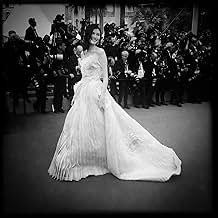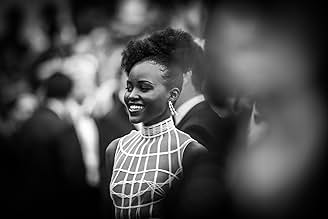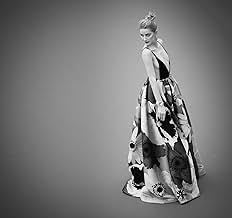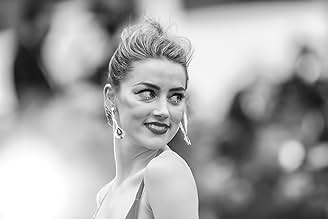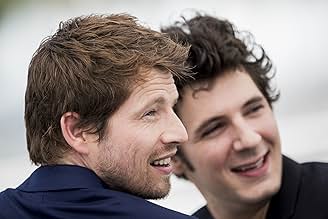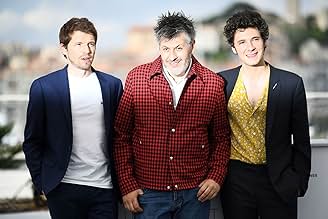Jacques è uno scrittore, già adulto, che viene da Parigi. Arthur è un giovane studente di Rennes. Si innamorano a prima vista. Ma dovranno affrontare la malattia per restare insieme.Jacques è uno scrittore, già adulto, che viene da Parigi. Arthur è un giovane studente di Rennes. Si innamorano a prima vista. Ma dovranno affrontare la malattia per restare insieme.Jacques è uno scrittore, già adulto, che viene da Parigi. Arthur è un giovane studente di Rennes. Si innamorano a prima vista. Ma dovranno affrontare la malattia per restare insieme.
- Regia
- Sceneggiatura
- Star
- Premi
- 6 vittorie e 11 candidature totali
- L'actrice
- (as Marlène Saldana)
Recensioni in evidenza
It's territory Honore has explored before and more explicitly but this well-crafted, if overtly cool, movie represents something of a step forward if only in terms of style. This is a more formal, less kinetic, Honore but one still unable to shake off that sense of ennui. The performances are excellent but the characters aren't engaging. Also setting it at a time when AIDS was more prevalent than it is now seems like an unnecessary plot device rather than an attempt to get us to understand or care more about the people we see. Throw in a girlfriend and Jacques' young son and you get the impression that Honore is going out of his way to be 'cool' as if making a gay epic but one without a centre. Add a load of references to cinema and literature and you know exactly who this is aimed at. One for the fans, i'm afraid.
I have awarded this film 7/10 because I thought it was a good film but not as good as it could have been. The dialogue in French is brutally difficult to follow as there is a lot of slurping over words and saying things in a way that you can only truly follow if you are in the same room with the people speaking, and then .... I found the characters drab, and the bisexual Breton tiresome.
And now for a major criticism about films set in the past about Aids. Where were the films during that period of the crisis? This retro look back makes me angry. Film makers should have had the courage back then to deal with this period in our history. Films like 'Theo and Hugo' are masterful as they deal with the situation now and are up to date. One reviewer here summed this up for me. He or she says, love-and romanticism-in the days of AIDS. In the days of? This is not a past thing. The days are now. Homosexuality and HIV are now. And yes as a friend of mine said, they need to know how it was, but frankly with a still on-going crisis we need to know how it IS.
One good element of this film is that it shows a child in a homosexual household in a positive way, and despite my slight boredom with the relationships, it is at least about an important issue. French film is waking up to homosexuality thanks to a list of good directors, and the dark negativity of the Nouvelle Vague, where love was strictly heterosexual, has slipped back into the waters from where it came. The Nouvelle Vague liberated image, but was feeble on diversity and dodgy on politics. Honore is a great director, but I am still waiting for his great film.
Sorry Angel is about relationships. You do not need to be gay to watch it, but you need to understand humanity and compassion. Honore gets to the meat without chewing on the fat while his poignant dialogue is relatable to everyone eventually. The context of the movie (the 90's AIDS epidemic) is a setting for the text (based on the director's university years and his gay idols, writers and directors who died from the disease) but it is the subtext, Honore's observations about relationships--discerning, unsentimental, realistic portrayals of humans both gay and straight--which elevates the movie to the forefront of cinematic reflections. Where Robin Campillo's recent BPM (another stunner) focuses on activism, Honore shows us sympathy and love during an era of uncertainty and chaos.
Jonathan Romney notes that Sorry Angel is a "novelistic film" because it presents itself like great literature. The plot might be purposefully transparent, but the devil is in the details.
Lo sapevi?
- QuizThe character of Jacques (Pierre Deladonchamps) shares his surname with Pier Vittorio Tondelli, an Italian author who died of AIDS.
- Citazioni
Pierre: Cruelty is not one man wounding another, mutilating or torturing him, severing his limbs or his head, or even making him cry. The true, terrible cruelty is that a man who cuts another off, interrupting him like dots in a sentence, or looking away from him, making him an error of the gaze, an error of judgement, an error like a letter crumpled up after starting it, after writing the date.
- ConnessioniFeatures Lezioni di piano (1993)
- Colonne sonoreOne Love
Performed by Massive Attack
I più visti
- How long is Sorry Angel?Powered by Alexa
Dettagli
- Data di uscita
- Paese di origine
- Siti ufficiali
- Lingua
- Celebre anche come
- Sorry Angel
- Luoghi delle riprese
- Aziende produttrici
- Vedi altri crediti dell’azienda su IMDbPro
Botteghino
- Budget
- 3.610.000 € (previsto)
- Lordo Stati Uniti e Canada
- 30.628 USD
- Fine settimana di apertura Stati Uniti e Canada
- 6559 USD
- 17 feb 2019
- Lordo in tutto il mondo
- 1.636.273 USD
- Tempo di esecuzione2 ore 12 minuti
- Colore
- Proporzioni
- 1.85 : 1
Contribuisci a questa pagina


![Guarda Bande-annonce [OV]](https://m.media-amazon.com/images/M/MV5BMGQ2ZDgwYTUtMmRhYy00ZDNkLWI1OTctZTc1YjMxM2ZkMmY2XkEyXkFqcGdeQXRodW1ibmFpbC1pbml0aWFsaXplcg@@._V1_QL75_UX500_CR0)
